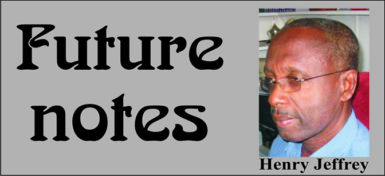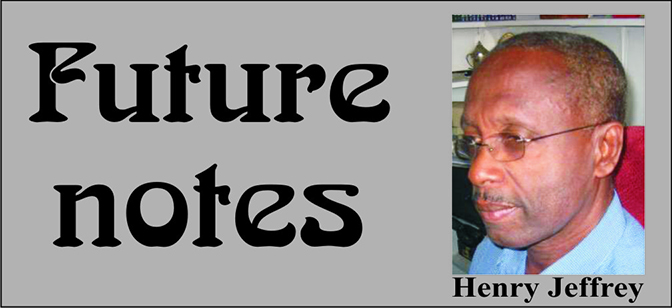
Last week, to former attorney general Mr. Anil Nandlall’s contention that Burnham could not ‘function’ under the Westminster Constitution, giving reasons for my claiming so, I argued that Forbes Burnham not only functioned, but helped by the system that gave him control over both the executive and the legislature, became an autocrat long before the 1980 constitution. Indeed, there was little he could do under the 1980 constitution that he could not and did not under the 1966 independence constitutional arrangement. However, Mr. Nandlall claimed that what he actually meant by Burnham not being able to ‘function’ under the Westminster constitution was that he had a ‘demonstrable dislike’ for the democratic principles inherent in it, could not operate with it and thus had to destroy it (SN: 23/2/18). While there is absolutely nothing wrong with making this claim, the problem is how to demonstrate it: prove it. Importantly, Mr. Nandlall pointed to the removal of Chief Justice Sir Joseph Luckhoo as head of the extant judiciary and the PNC government’s decision that Guyanese should no long be ruled by a monarchy or judged by the Privy Council.
So far as Chief Justice Sir Joseph Luckhoo is concerned, in the heat of the independence struggle, which was also an effort to remove the PPP, one’s ‘fiercely independent’ individual can easily be another person’s quisling or coward. It should be noted that the independence constitution was agreed upon, if not with the PPP, with Westminster itself. Also, Sir. Kenneth Stoby, who became the first chancellor, was an eminently qualified Guyanese who was perhaps senior to Sir Joseph Luckhoo. He had been chief justice of Guyana for about two years under the PPP before he was succeeded by Sir Joseph Luckhoo and migrated to become chief justice of Barbados for about another six years.
Further, since when is being ruled by the British monarchy and judged by the Privy Council considered such important aspects of Westminster-type political systems that we could extrapolate authoritarian inclinations from their removal? There is a huge body of opinion that holds that the relinquishment of these colonial trappings is essential to the development of a national identity. In 1970, the very year Guyana became a republic and abolished appeals to the Privy Council, the abolition of the latter was proposed by Jamaica at the Caribbean heads of government meeting. Some may say, therefore, that in some ways Forbes Burnham was ahead of his time! Furthermore, if the leaders of the PNC were socialist-orientated and, as Dr. Shahabuddeen suggested, the constitution was viewed by them as capitalist-orientated, is it not just as legitimate to view their wanting a new constitution as resulting from this fact?
When Burnham and his sister Jessie fell out, in about 1961 she wrote a pamphlet ‘Beware My brother Forbes’ warning Guyana of his apparent Jekyll and Hyde character: ‘Behind that jest, that charm, that easy oratory is a certain stain of cruelty which only surfaces when one of his vital interests is threatened. There are two Burnhams; the charming and the cruel. BEWARE of both.’ Ever since then, this notion of Burnham being the ‘resident evil’ has been a standard feature of PPP propaganda, and had I not apparently misunderstood Mr. Nandlall, I would not even have bothered to comment on his missive. While they may be music to the ears of the faithful, these kinds of position that cannot be properly substantiated are obstacles to social cohesion and progress.
Whether or not Forbes Burnham had an autocratic personality is not relevant to my contention that he was facilitated by a constitution that placed in his hands both the executive and the legislature, and that far from ‘wholly’ dismantling the Westminster system, as the former AG claimed, the 1980 and the 2000 reforms have retained this combination, which is particularly dysfunctional in our ethnic context. Any new reform process must be based on an understanding of how these connections relate to our desire to prosper together.
Mr. Nandlall wrote, ‘Dr Jeffrey next posits that the People’s Progressive Party (PPP) “also ran an autocratic regime and by the time it demitted office, 60% of its own constituency and 80% of Africans did not care for them”. Mr. Nandlall claimed that these numbers cannot be correct as ‘it took a coalition of five political parties to remove the PPP after 23 years in government, and only by less than 5,000 votes.’ In the interest of space, please see `Still gat to vote for these jokers’ (SN: 20/12/17) for an indication of what occurs in countries such as ours, especially when parties, as the PPP did in 2015, become involved in open, and some would say vulgar, ethnic mobilisation.
Stating that I was in the cabinet for 17 years, the former AG asked what role I ‘played in resisting the PPP’s autocracy.’ As a member of the cabinet, apart from resigning (those who have chosen this path have not been more successful in fundamentally changing the way forward), one can only try to build bridges and convince one’s colleagues that they are on the wrong track. On many occasions I did both and an example of the latter can be found in the section titled ‘The Political Way Forward’ in a 2004 circulated paper, Normal Politics: The Economy. ‘Normal politics rests upon the kind of nondestructive opportunism that recognizes the possible changing of roles from government to opposition and vice versa. This is precisely why there needs to be the possibility of defeat. Indeed, in the absence of this precariousness it is all but impossible to significantly reduce corruption and other wrong doing. It is also why dictatorships are prone to institutional corruption. What this means is that real opportunities to position an alternative government should be created and grasped. As such, an important element on the road to a normal environment is a creative opposition able to peacefully wrest power from the current regime.’
One aspect of the 1980 constitution that perplexed me was the maintenance of the plurality but for gaining the presidency. After all, to be assured of acquiring a plurality the PNC would still have had to manipulate elections, and here I detect perhaps another aspect of Burnham’s farsightedness that is normally missed. In 1975, the Helsinki Accords and particularly its Basket 111, which emphasised human rights, was agreed. According to Henry Kissinger, Basket 111‘was destined to play a major role in the disintegration of the Soviet satellite orbit and became a testimonial to all human rights activists in NATO countries’ (Kissinger, Henry. (1994) Diplomacy. Touchstone Books, New York). The writing was on the wall and with a more proportionate distribution of votes, the system would have appeared liberalizing, but the plurality would have kept Burnham in office to protect the interest of his constituents but still provide enough space, as it did the PPP in 2011, for the possible development of a government of national unity until such time as the races became more integrated. Forbes Burnham’s foresight may have been correct, for in 1981, Ronald Reagan came to government in the United States and became almost evangelical about the human rights context of ‘American exceptionalism’, making human rights ‘a weapon in the day-to-day struggle against communism’ (Ibid.). His government began to pressure the Burnham regime, which, if Halim Majeed is to be believed (Forbes Burnham: National Reconciliation and National Unity 1984-1985. (2005) Global Communications, New York), then began to make preparations for a government of national unity. But Burnham died and his successor had other ideas.
As to why Article 127(2) exists if not to end gridlock, in my view it is the usual organisational design that indicates what should be done in the normal absence of employees, in this case the chancellor and chief justice. It was not intended to break a deadlock in the initial appointment process. This constitutes my final statement on this issue in this column; there is much more that could be said but space does not allow. However, as requested by Mr. Nandlall, one day I may well elaborate on my contribution to trying to get the PPP to take a course different from the destructive one it ultimately set itself upon.






